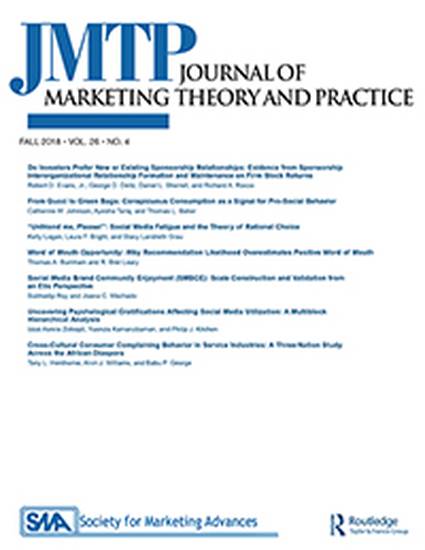
Article
Managing the Drivers of Organizational Commitment and Salesperson Effort: An Application of Meyer and Allen's Three-component Model
Journal of Marketing Theory and Practice
(2009)
Abstract
This study extends the literature by utilizing a three-component organizational commitment measure to identify ways for managers to drive salesperson effort. Using social exchange theory and survey data from industrial salespeople, an analysis reveals that perceived organizational support (POS) has a strong positive effect on affective commitment, no significant effect on normative commitment, and a negative effect on continuance commitment. Further, the findings show that only one component of organizational commitment-affective commitment-has a positive direct effect on sales effort, whereas normative and continuance commitment do not. However, normative commitment plays a supporting role as it positively moderates the relationship between affective commitment and effort. In addition, the study indicates that job satisfaction has positive effects on both affective and normative commitment, but no significant effect on continuance commitment.
Disciplines
Publication Date
Fall 2009
Citation Information
Qingbo Fu, Willy Bolander and Eli Jones. "Managing the Drivers of Organizational Commitment and Salesperson Effort: An Application of Meyer and Allen's Three-component Model" Journal of Marketing Theory and Practice Vol. 17 Iss. 4 (2009) p. 335 - 350 Available at: http://works.bepress.com/qingbo-fu/13/
